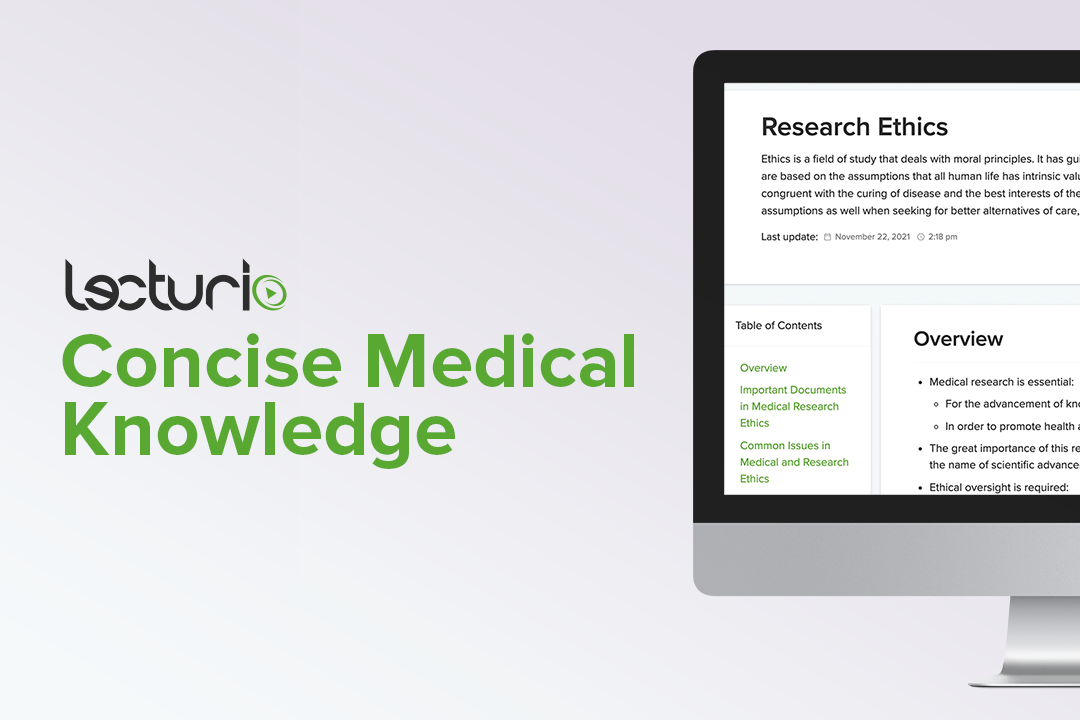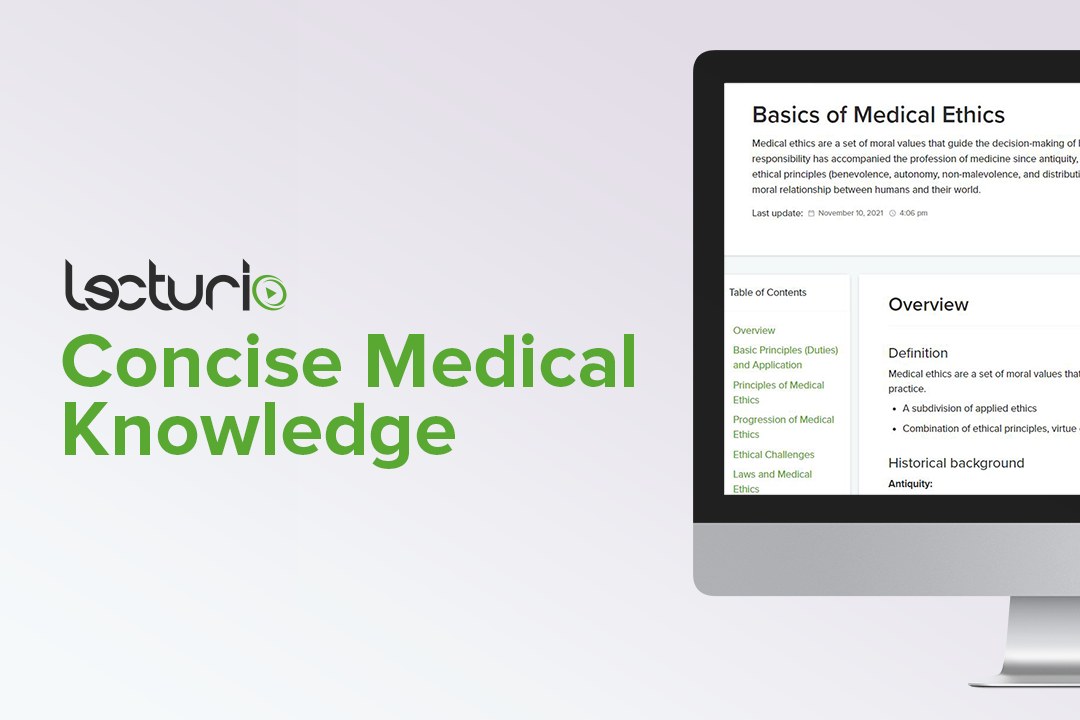Playlist
Show Playlist
Hide Playlist
Declaration of Helsinki
-
Slides 15 ResearchEthics Epidemiology.pdf
-
Reference List Epidemiology and Biostatistics.pdf
-
Download Lecture Overview
00:00 So that takes me to the Declaration of Helsinki, which I believe is the most important of the foundational documents that define medical ethics in the past hundred years. It was adopted in 1964, but it hasbeen updated a few times, most recently in 2013. And in attempts to tie together what was found in the Declaration of Geneva with the basic tenets from the Nuremberg code. There are five basic pillars that the Declaration of Helsinki lands upon and these are the five pillars that we often talk about when we talk about the pillars of ethics. The first is principlism, which is all about the respect for persons. This is a respect for their ability to make decisions about their own care. You have to respect vulnerable people as well under this category, because even vulnerable people, like children, like perhaps the mentally incapacitated or the socially or economically vulnerable, they have the ability and the right to make decisions for themselves. 00:57 Beneficence pops up again and this comes out of Hippocratic Oath. Beneficence is our attempt to do good. 01:01 All medical professionals must always try to make the world a better place, we try to do good. On the flipside, we should try not to do bad, we all have it in us to create evil, we have to avoid that potential and that urge. Justice comes up again, justice is when we treat cases alike and different cases differently, alike cases alike and different cases differently. This is a difficult thing to understand sometimes, but think about a research project that is offering some sort of a new therapy to a community, to test out this new therapy. Why is it being offered to this community and not that community? That has to be justified, because if it's offering an advantage with some kind of beneficence, why do some people get and others do not. At the same time, you have to justify why certain groups are being experimented on and others are not. We can't be racist, we can't be sexist, we can't be classist. This is why justice is so important. We have to act in the best interest of our subject as well. Is it in their best interest to be in your study for example. If it isn't, then you have to give serious thought to why you're conducting the study in the first place. 02:10 The criticisms of the Declaration of Helsinki are many. One of them is that it does not have the force of law, in fact none of these documents or agreements that I've mentioned have the force of law. They are guidelines for helping local regulations to be written, but they are not laws unto themselves. It offers no guidance as to how to rank the pillars again, they are just, "Here are the pillars beneficence, principalism, non-maleficence" and so forth, but which is more important than others, no guidance there. It celebrates autonomy, now all of the documents and agreements I've mentioned so far, to some extent are based upon autonomy, respect for an individual's right to choose. It can be argued that autonomy as a sacrosanct value is very much a Western ideal. It's possible that some non-Western cultures or populations may not value it as much. Maybe it's just as important to get the consent of a family member, a child perhaps, that you are responsible for, maybe that individual has as much to say about your care as you. I'm not saying whether he or she does, I'm just saying it's a criticism. Also the declaration assumes that the best expression of autonomy is informed consent. Maybe there is a better way to do it, I don't know, but this is one of the criticisms. 03:29 Now let's summarize all the pillars of ethical research. There are eight of them, even though there are five the Declaration of Helsinki identified, one could argue there are eight or ten or twelve, let's explore these eight. We've talked about autonomy already. Autonomy is when we respect an individual's right to dictate his or her own future. Beneficence is when we assess that we, the clinician or the researcher, is trying to do good. Non-maleficence is when we're trying not to do bad. Justice again is when we're treating different populations the same, so we can't be racist, we can't be sexist and so forth. We try to act in the best interest of the patient or research subject and the last three are kind of similar to each other, so let's go through it together. There is fidelity, truthfulness and confidentiality. 04:15 This has to do with trustworthiness, so by fidelity, are you being loyal to your patient or to your subject. For example, your subject is putting him or herself under your care and trusting that you will do the best job you can to give him or her proper care, even in the context of a research study. You can't violate that trust that takes us back the trustfulness again. Trustfulness is the idea that you should not be lying to your patient or to your subject. 04:44 Sometimes we do anyway, think about psychological studies, where sometimes we will lie to a subject to get them to think about something while we test them for something else. 04:54 So sometimes it's okay, now generally we try to avoid any sort of deception. Confidentiality is when we keep their data and their identities and their perspectives confidential. We don't share them unless we have permission from them to share those ideas, those data points. 05:12 Sometimes confidentiality can be related to anonymity. So the difference is anonymity is when I don't know, as a researcher, who the subjects are, confidentiality is when I do know, but I am not going to share that information with other people.
About the Lecture
The lecture Declaration of Helsinki by Raywat Deonandan, PhD is from the course Research Ethics.
Included Quiz Questions
Which of the following is NOT a criticism of the Declaration of Helsinki?
- It should not offer respect to all people.
- It does not have the force of law.
- It offers no guidance to how its pillars are weighted.
- It celebrates autonomy, which can be interpreted as a western ideal.
- It assumes that the best expression of autonomy is informed consent.
Which of the following pillars of the Declaration of Helsinki is correctly paired with its definition?
- Principilism - respect for others
- Beneficence - try to harm others.
- Nonmaleficence - try not to do good.
- Justice - treat people who are different worse than people who are like you
- Best interest - do what is best for the researcher
Which three pillars were added to the Declaration of Helsinki to make the eight pillars of ethical medical research?
- Fidelity, truthfulness, confidentiality
- Fidelity, truthfulness, spirituality
- Nonmaleficence, beneficence, best interest
- Pricipilism, truthfulness, confidentiality
- Fidelity, clarity, confidentiality
Customer reviews
5,0 of 5 stars
| 5 Stars |
|
5 |
| 4 Stars |
|
0 |
| 3 Stars |
|
0 |
| 2 Stars |
|
0 |
| 1 Star |
|
0 |





